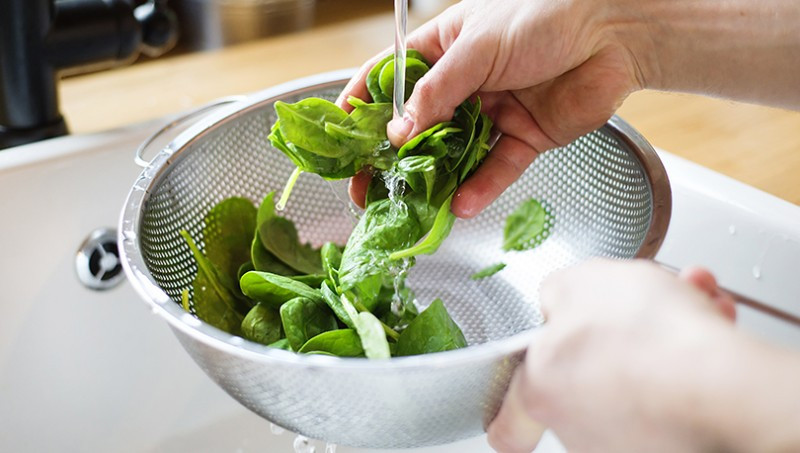Your liver plays several important roles in your body, enough so that maybe it's time to show your liver some love. You can start by eating the right foods, avoiding toxins, and limiting your alcohol intake. All that is so your liver can properly perform its primary missions of removing toxins and medications from your body, while also breaking down (metabolizing) the food you consume. Per hopkinsmedicine.org, your liver also helps to regulate your cholesterol levels, builds proteins, and manufactures bile – a process involved in the healthy absorption of fats, the storage of sugar for when your body needs it, and the regulation of hormone levels. You need to be showing love for your liver, and like any loving relationship, it requires a daily commitment, in this case so as to avoid liver disease, for starters.
Types of Liver Diseases
The best way to fight any liver disease is to avoid it. That can pretty much be accomplished by a healthy diet and responsible lifestyle habits, such as the limited alcohol consumption. Perhaps you don't think about your liver that much in everyday life – plenty of people don't – but when something goes wrong with that football-shaped organ that resides below your lower ribcage on the right, all bets are off. Misery can follow. Here's a sobering thought: you can't survive a week without your liver. That's according to hopkinsmedicine.org, where Dr. Saleh Algahtani, director of clinical liver research for Johns Hopkins Medicine, is quoted as saying, If your liver stopped working, toxins would accumulate, you couldn't digest your food, and medications would never leave your body. One liver-related disease that can severely curtail your quality of life, as well as your probable longevity, is cirrhosis. That's where your liver cells are gradually replaced by scar tissue, preventing your liver from functioning properly and doing its tasks. Another disease is nonalcoholic fatty liver disease (NAFLD), which, according to hopkinsmedicine.org, is an epidemic among obese people that is growing rapidly, with NAFLD possibly lead to cirrhosis. Then there's hepatitis A, B, and C, which are viral diseases. Per medicalnewstoday.com, liver dysfunction can also lead to metabolic disorder and type 2 diabetes.12 Tips to Protect Your Liver's Health
If you have any questions about how best to preserve your liver's best health, be sure to discuss them with your physician.- Eat grapefruit. Per medicalnewstoday.com, grapefruit contains naringin and naringenin, two antioxidants that can enhance liver health by reducing inflammation and guarding the liver cells. Other good fruits to include your diet are dark berries, such as blueberries and raspberries; grapes; and prickly pears.
- Consume fatty fish. That includes salmon and other fish with omega-3 fatty acids, which apparently offer liver health benefits by thwarting the buildup of excess fats while maintaining proper enzyme levels in the liver.
- Eat nuts. These can guard against NAFLD, per medicalnewstoday.com, thanks to the presence of ingredients such as fatty acids, vitamin E, and antioxidants – which can work in tandem to help decrease inflammation of the liver as well as reduce oxidative stress.
- Use olive oil. Sure, it contains fat, but use in moderation. It makes a good cooking oil or salad dressing, among other things. Olive oil can help reduce oxidative stress and enhance liver function.
- Drink coffee. More than half of all Americans drink coffee, and apparently they are on to something good. Coffee reportedly can play a part in protecting against conditions such as fatty liver disease.
- Limit alcohol consumption. Per hopkinsmedicine.org, all it takes is four ounces of hard liquor a day for men (two for women) to start experiencing scarring of the liver.
- Wash produce; avoid toxins. Pesticides and other toxins can damage your liver.
- Eat a balanced diet. Per liverfoundation.org, this means staying away from high-calorie meals, saturated fat, refined carbohydrates (white rice, regular pasta, etc.), and sugars. But load up on fruits and vegetables, and other foods with plenty of fiber.
- Consistent exercise. Doing so helps burn triglycerides and might also decrease liver fat in your body.
- Practice safe sex. Otherwise, you risk contracting hepatitis B or C.
- Get vaccinated. There are vaccines for hepatitis A and B (but not for C), per liverfoundation.org.
- Milk thistle. Often found in supplemental form, one of its potential health benefits is to target liver health.

